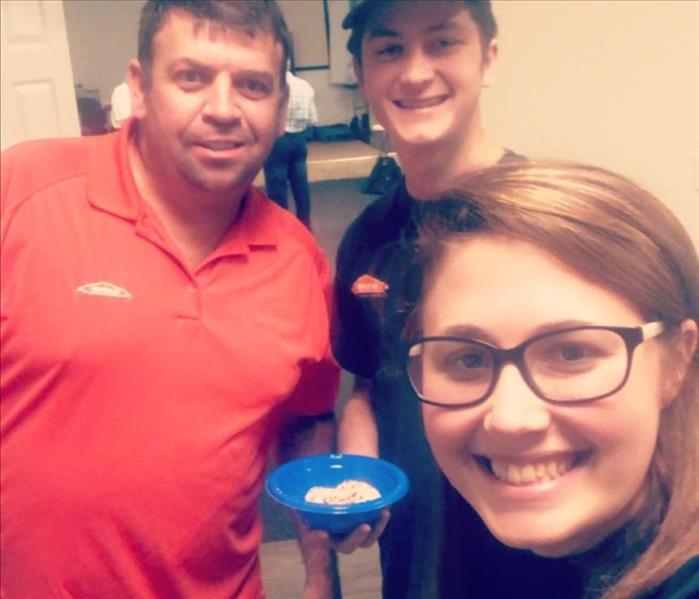SERVPRO of Fernandina Beach/Jax NE Employees Complete IICRC-Approved Water Damage Restoration Technician (WRT) Course
10/14/2019 (Permalink)
 We congratulate Pamela, Jeremy and Michael for successfully completing the WRT course and adding to their skill sets!
We congratulate Pamela, Jeremy and Michael for successfully completing the WRT course and adding to their skill sets!
(October 14, 2019) In keeping with the company goal of having only the most highly trained personnel, three SERVPRO of Fernandina Beach/Jacksonville Northeast employees successfully completed the WRT (Water Damage Restoration Training) Course last week. The three-day course was held in Jacksonville and is a prerequisite for other approved courses offered by the Institute of Inspection, Cleaning and Restoration Certification (IICRC).
Pamela Corbitt, Jeremy Wade, and Michael Rorrer attended the training courses and took the exam; The WRT Certification Exam is comprised of 140 multiple choice questions.
The IICRC-approved Water Damage Restoration Technician (WRT) course is designed to teach restoration personnel that perform remediation work to give them a better understanding of water damage, its effects and techniques for drying of structures. This course will give residential and commercial maintenance personnel the background to understand the procedures necessary to deal with water losses, sewer backflows, and contamination such as mold.
When coupled with additional on-the-job training and field experience, students will be prepared to perform and document typical residential or light commercial water-damage restoration projects from start to finish. They also should be adequately prepared to accomplish further training in other areas such as ASD (Applied Structural Drying) and (AMRT) Applied Microbial Remediation Technician, which require WRT (Water Damage Restoration Technician) as a prerequisite.
Covered Topics Include:
- General Discussion covers Principles of Drying, Categories and Classes.
- Equipment, Supplies, Chemicals
- Microorganisms, Health and Safety
- Drying Science
- Effect of Water on Materials
- Inspections
- Procedures: Sanitary Water Source
- Procedures: Unsanitary Water
Continuing Education: The IICRC continuing education program seeks to encourage registrants to actively participate in their industry through conventions, workshops and specialized training with continuing education and by sharing knowledge with others in the industry.IICRC-certified cleaning and restoration technicians face many changes in their field and require two credits every four years.






 24/7 Emergency Service
24/7 Emergency Service